Unit 11, Humber Avenue, Coventry. Doesn’t sound extraordinary, does it?
But wander in and you’ll discover the home of what is, by some measure, the UK’s most advanced autonomous vehicle manufacturer – so advanced, in fact, that it is already in the business of selling its four-seat electric self-driving pods to happy customers around the world at about £150,000 each.
This is not some outpost of Jaguar Land Rover or Nissan, however, but rather one part of the less well-known RDM Group, the parent company of Aurrigo, its autonomous vehicle arm, which is perhaps best known for its ongoing test projects in Milton Keynes, where it has been running its pods safely and effectively in public environments for some time now.
Listen carefully and you’ll soon get an idea of the depths of expertise in the room – partly from the number of big-brained qualifications being bandied about (think maths, computer science and electronics degrees) and partly from the variety of accents that give away the global pull of working at a cutting-edge firm.
Dotted around the up-and-comers there are also familiar industry faces among the 160-strong workforce: Jez Coates, ex-Caterham technical head; Richard Bartlam, former designer at MG Rover; and the Royal College of Art-trained Elliott Hawkins, now RDM’s head of design. Also present is Miles Garner, ex-Philips and Sony sales and marketing lead.
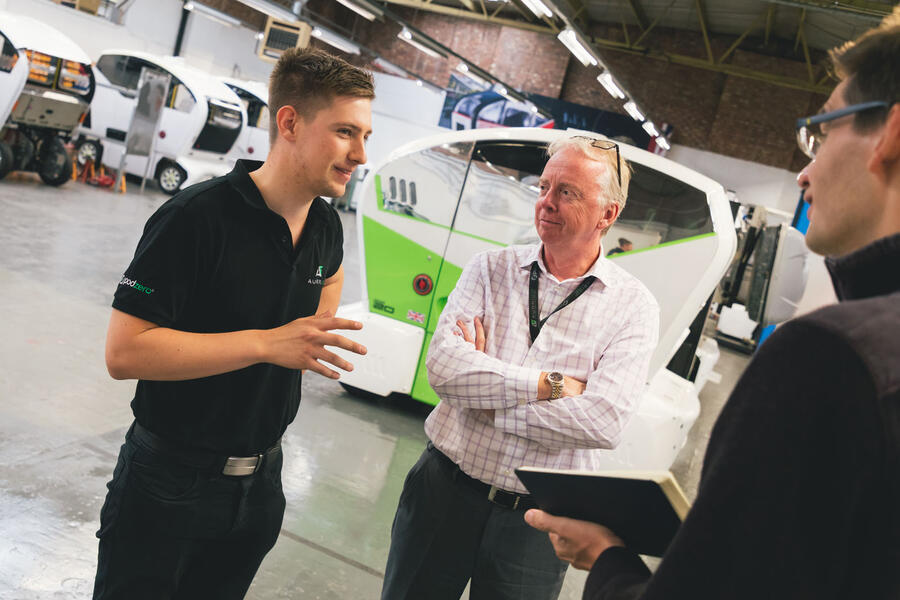
Heading it up is the firm’s CEO and co-owner, David Keene, who is – to emphasise the above point – also entitled to call himself Professor David Keene, BSc (electronics and electrical engineering), MIET, CEng and FRSA. “We’re on a journey with autonomy but I think our success to date is the result of being realistic and unrelenting,” says Keene, surveying the first, two-seat autonomous prototype the firm built – without even any suspension – six years ago.

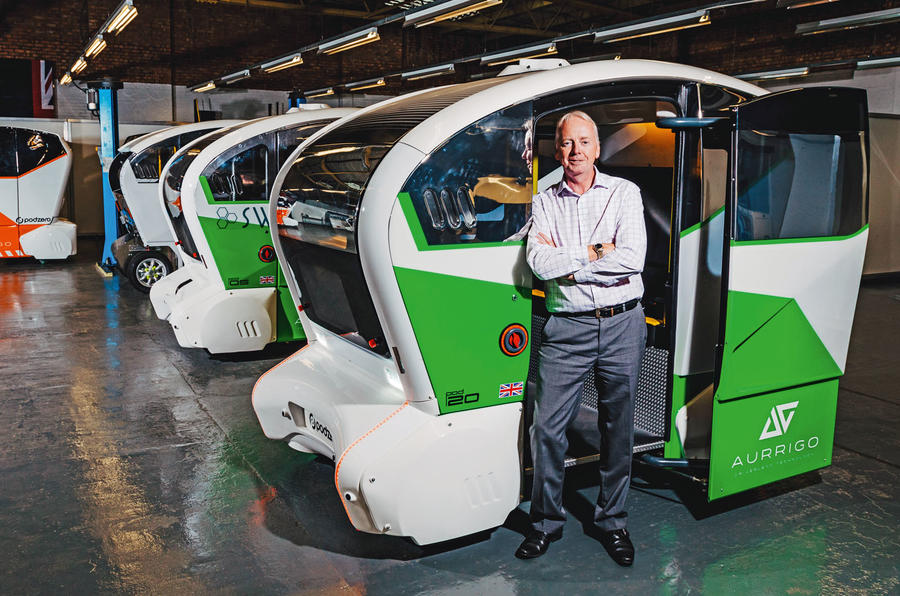


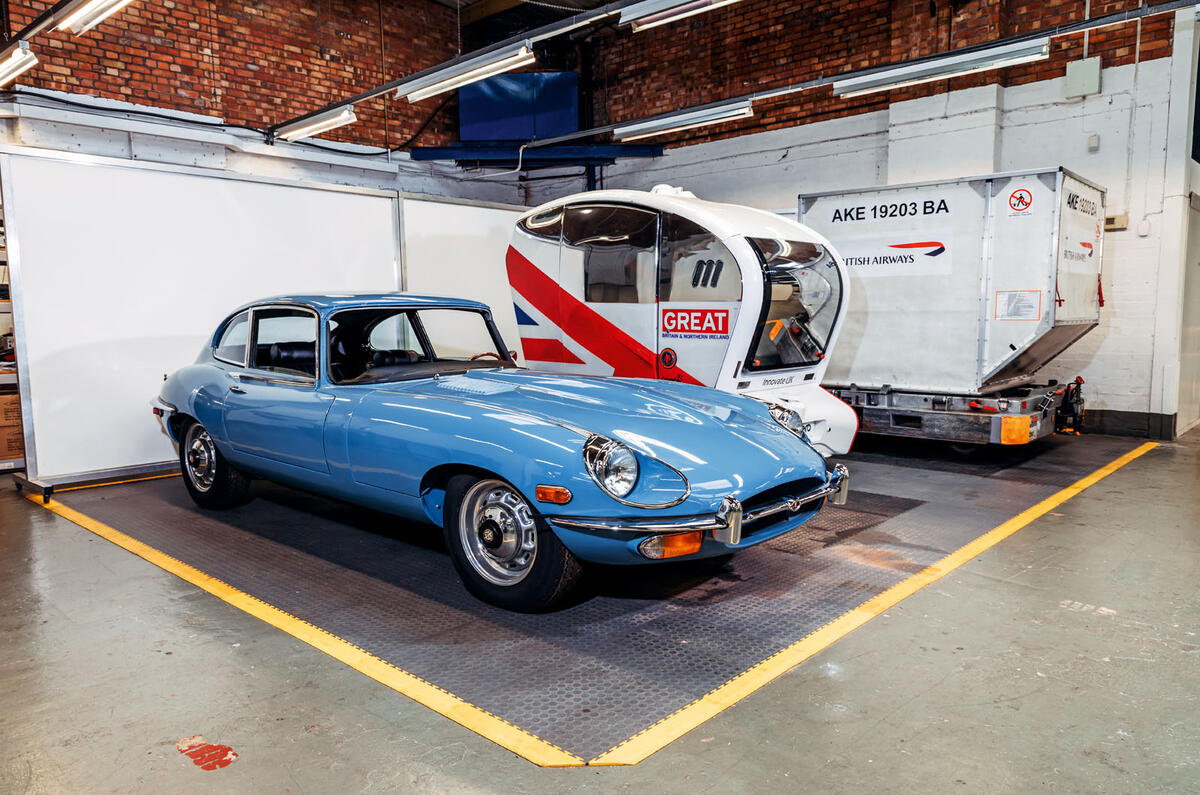








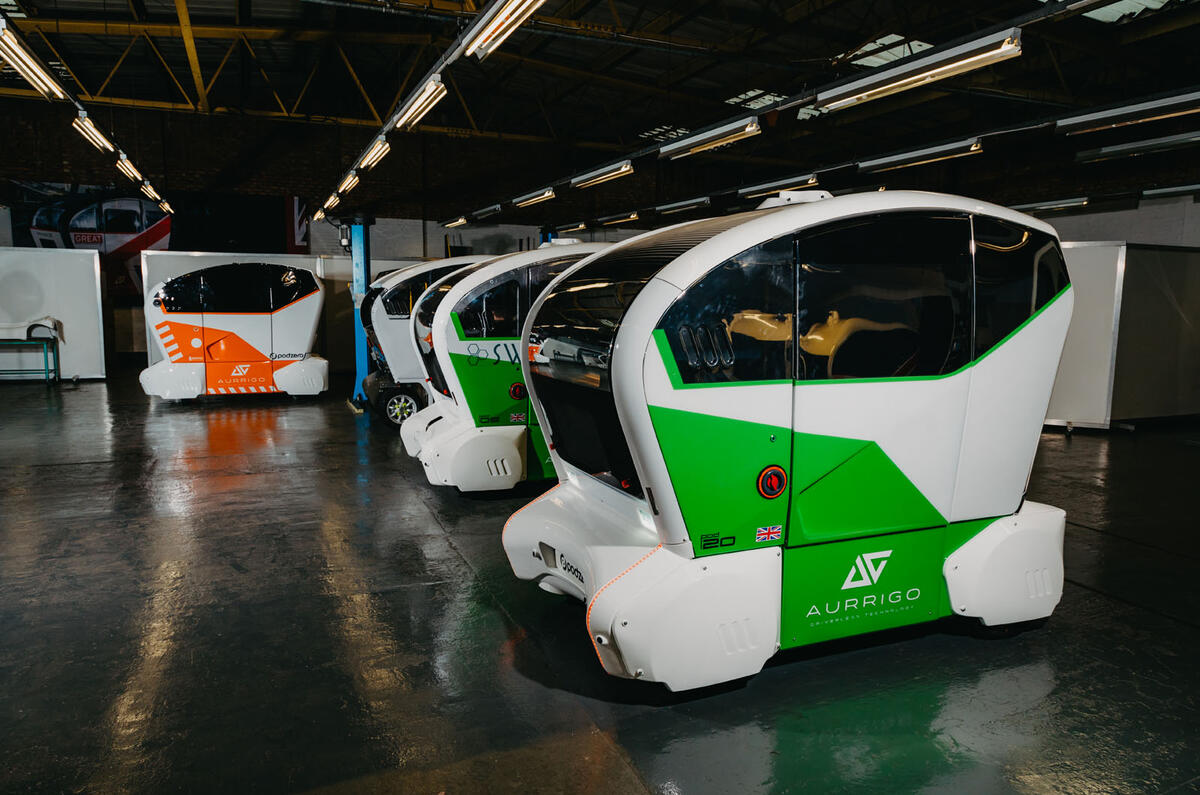




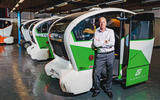

















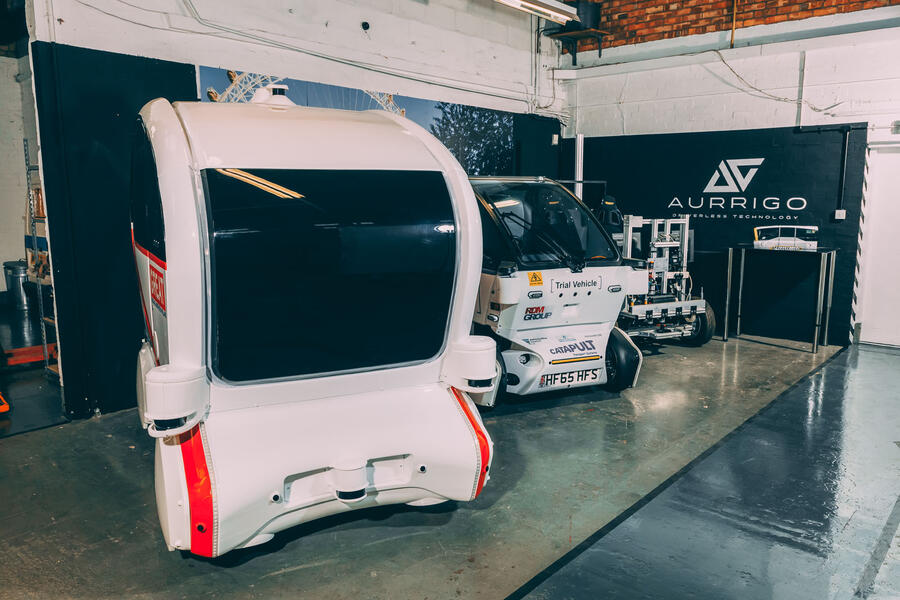
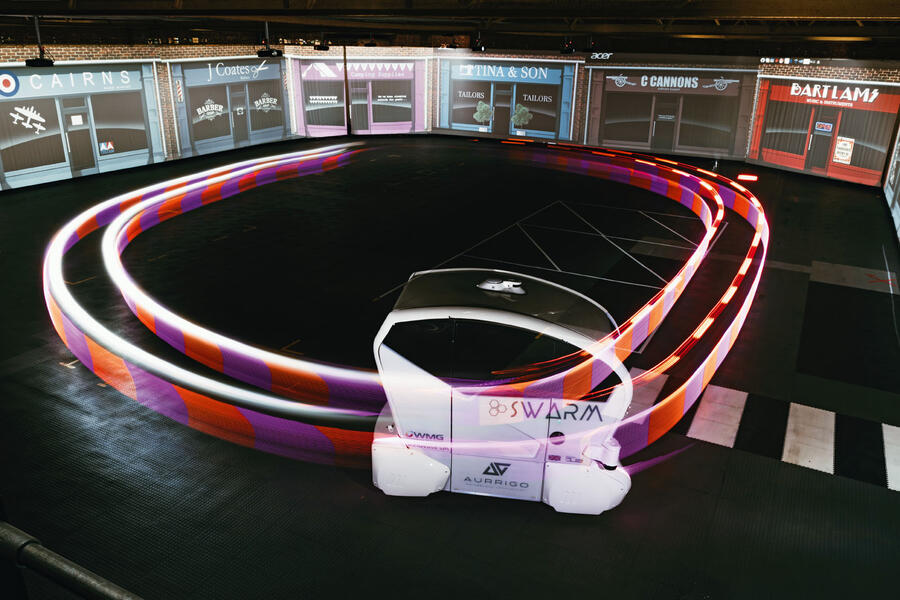


Join the debate
Add your comment
Pub trips!
Trips to the Pub (and back home) in these vehicles will become a no-brainer... And a mandatory part of UK life in the not-so-distant-future. An absolute necessity, the Gov't will say, when ya live amongst yobbos who abuse drink-driving ethics.
Vehicle autonomy how it is NOT meant...
[1] stupid-looking pods which make you look geriatric
[2] separate self-driving bus lanes which eat up precious space
[3] SUVs which form a danger to the more vulnerable road users such as cyclists
Humans
Human drivers are a threat to everyone.
You can not compare these
You can not compare these little players with the real juggernaut leading this field, Tesla, which has billions of miles in real data and with use of AI and supercomputers. It is heads and shoulders ahead of everybody.
unfortunate turn of phrase FRI2
It’s your head and shoulders you’ll lose when your ‘advanced’ Tesla autopilot doesn’t spot the juggernaut crossing the highway and you’re not paying attention and drive underneath it.
Autonomy is a sham if it relies on human backup. You’re sold apparently advanced driving assistance that still relies on you to bail it out at a moments notice if it gets too tricky. Pointless.
I admire Tesla’s ambition but it concerns me that some people actually believe the hype and that they actually own an autonomous car.
Harfy the lad does not
Harfy the lad does not understand the point. It's is data and information that will drive future autonomy. Nobody has more experience and innovation on this than Tesla. Their system is yes "heads and shoulders " above any competing system that is on the market (ask all the luxury German carmakers) and the gap is increasing every day. Nobody said the system is perfect but is getting better and better. It has already prevented many accidents and deaths. Autonomy full or partial is the future. Naysayers like you really don't understand this technology just as you never understand electric cars. Good luck with that Trabant
One learns, they all learn.
Every road accident caused by a human educates just one human, if they survive. Every automated vehicle accident educates the "hive". The unfortunate decapitation several years ago (which probably wouldn't happen in Europe, where lorry trailers are safer) will have been immediately analysed in depth by Tesla and failure in the same circumstances is unlikely to be repeated with newer hardware & software - unlike human drivers who will keep being dumb. There will always be accidents, but trials show machines to be 95% less likely to cause an accident than people.